Georgetown University and the Jesuits are confronting their history with slavery and have been working to provide reparations to descendants of those enslaved by them through scholarships and other contributions.
Earlier this semester, Georgetown and the Society of Jesus, the formal name for the Jesuits, announced a $27 million contribution to the Descendants Truth and Reconciliation Foundation to help descendants of those enslaved by the order of Catholic priests and the school the order founded.
According to the foundation, these contributions include $10 million from Georgetown and $17 million from the Jesuits. The $17 million from the Jesuits is based on the estimated value of plantation land where many descendants’ ancestors were enslaved, along with an additional $10 million, the foundation said.
This most recent contribution is in addition to the $15 million the Jesuits contributed when the foundation was created. The organization also said that Georgetown previously provided it with a $1 million implementation grant.
In 1838, the leaders of the Society of Jesus sold 272 enslaved people to plantation owners in Louisiana and Maryland to save the university from mounting debt and to fund other church-related activity, according to Rachel Swarns’ book, “The 272: The Families Who Were Enslaved and Sold to Build the American Catholic Church.”
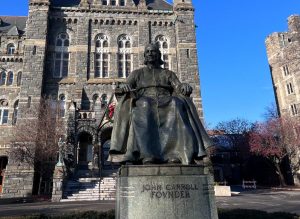
The foundation is a nonprofit organization that aims “to mitigate the dehumanizing impact of racism while dismantling the continuing legacy of slavery in America through truth, racial healing and transformation,” according to their website.
In addition to providing scholarships to descendants for higher education, the fund will aid in “truth-seeking, racial healing and transformation programs and activities that can lead to internalizing the truth about slavery,” according to the foundation’s website.
Georgetown is just one of several U.S universities and colleges coming to grips with their historic connections to slavery. Harvard University is another school doing so.
In April 2022, Harvard released the Report of the Committee on Harvard & the Legacy of Slavery and announced a $100 million commitment to fulfil the report’s recommendations.
Initiatives like these aim to uncover the institution’s ties “to slavery through deep research guided by a committee of distinguished faculty drawn from across the University,” according to Harvard University’s website.
Julianne Malveaux, an economist, author, and commissioner at the National African American Reparations Commission, said that several universities benefited from their relationship with enslavement.
The commission is committed to reparatory justice and compensating African-American communities that were ravaged by crimes that were perpetrated during slavery.
“I think it is extraordinarily urgent for folks to come to grips with the past,” said Malveaux. “That means acknowledging their role in enslavement, acknowledging their role in discrimination and acknowledging their role in embracing white supremacy.”
“The Society of Jesus has already put in $15 million to the Descendants Truth and Reconciliation Foundation,” said Richard Cellini, founder of the Georgetown Memory Project. “So there’s really a total of $42 million.”
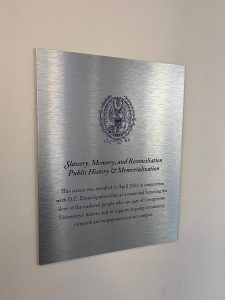
The Georgetown Memory Project is an independent genealogical research effort that strives to identify the enslaved who were sold by the Jesuits.
The project has identified 241 people of the 272 who were enslaved and sold in 1838, according to Cellini. The project located and traced more than 10,000 direct descendants, about 6,000 of whom are alive today.
GU272 is an association that was founded by the descendants of GU272 and is committed “to preserving the memory, commemorating the lives and restoring the honor of the 272 enslaved people sold by the Jesuits.”
“They were sold for about $426.50 each and collectively it totaled $115,000, which today is the equivalent of $3 million,” said Cellini.
“It is good that there are descendants who are involved with building this relationship between the Society of Jesus and the descendants’ families,” said Mélisande Short-Colomb, a research and community engagement associate at the Laboratory for Global Performance and Politics at Georgetown University.
Colomb is a descendant of two families enslaved and sold by the Jesuits in 1838.
Colombe emphasized that universities in the U.S in the late 1800’s “greatly benefited from the American system of enslavement and human trafficking.”
“Men create laws and policies, to disenfranchise people, to enslave people, and to support systems of suppression, oppression, and disenfranchisement,” said Colombe. “That comes out of the American education system.”
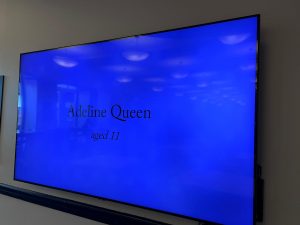
However, funds like these have received some criticism for how they help descendants.
Cellini argued that scholarships are a form of elite capture. The phenomenon can be defined as “a way socially advantaged people tend to gain control over financial benefits meant for everyone,” according to the Boston Review.
“It’s nothing particular to Georgetown and the Jesuits; it happens almost everywhere,” Cellini said. “But certainly Georgetown and the Jesuits did nothing to try to avoid the problem of elite capture.”
“Scholarships aren’t reparations,” Cellini said. “What we would favor is direct payments.”
Malveaux said that reparations are about repair and not only about a check.
“I applaud the action that this committee is taking, quite frankly, that is not enough but it’s a step in the right direction,” said Malveaux.
Malveaux said that universities in D.C that have benefited from slavery should support legislation like H.R 40.
H.R 40 is a pending legislation that Rep. John Conyers, D-Michigan, introduced every year from 1989 till he passed away in 2019.
The legislation aims to “examine slavery and discrimination in the colonies of The United States from 1619 to the present and recommend appropriate remedies.” In the latest session of Congress, a version of the bill was introduced by Rep, Sheila Jackson Lee, D-Texas.
“If Georgetown and other universities are clear about their role in enslavement, they would enthusiastically support H.R 40,” said Malveaux.
In 2022, the university also established the Reconciliation Fund, which is a $400,000 fund to support descendants of the enslaved. The fund supports community-based projects such as health and legal clinics and advocates for projects in environmental justice and local history, according to Georgetown University’s website. A new application cycle opened in Oct. 2023.
“The impact of slavery is generational, and it’s difficult to quantify these harms,” said Vasudha Jalan, a graduate student of public policy at Georgetown University. “But hopefully along with this sum and the long-term plan, Georgetown will continue to make progress.”
Jalan drew parallels to her time being an undergraduate student at the University of British Columbia.
“For example at UBC, my undergraduate school, I think there were mandatory videos students had to watch about First Nations given that the school sits on the traditional, ancestral, unceded territory of the xʷməθkʷəy̓əm (Musqueam) First Nation,” said Jalan. “That really raised awareness about the issue to international students like me.”

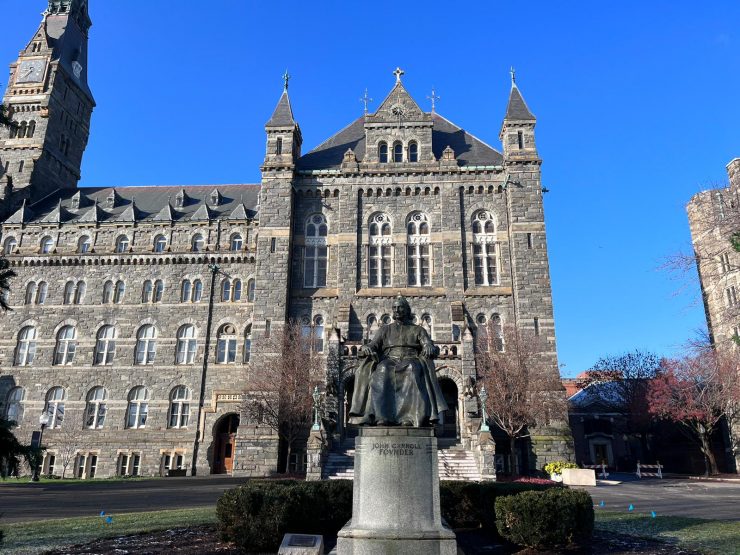
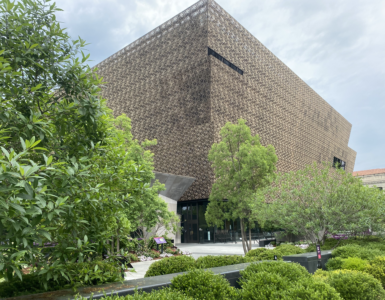
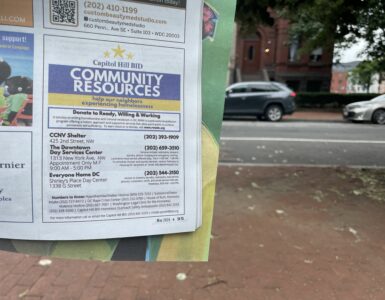











Add comment